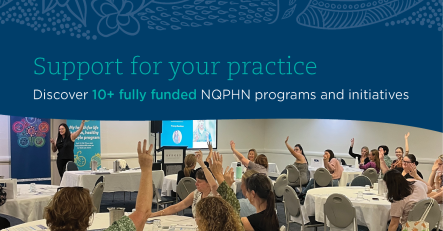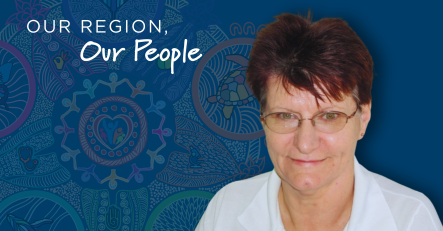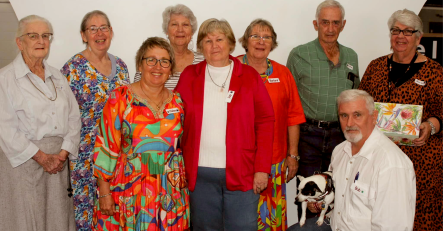Travelling across the Torres and Cape Hospital and Health Service (TCHHS) to deliver engagement with primary care clinicians is no easy feat … there’s 130,000sq km.
Throughout the Torres and Cape regions, general practices, the Royal Flying Doctor Service (RFDS), Queensland Health Senior Medical Officers (SMOs), rural generalists, nurse practitioners, and health workers are the faces of primary care and provide services to more than 26,000 people.
More than 12 months ago, the FNQ HealthPathways team, which is based in Cairns and co-funded by Northern Queensland Primary Health Network (NQPHN) and Cairns and Hinterland Hospital and Health Service (HHS), visited Thursday Island to work with health professionals to map services, establish networks, and better understand the needs of the area to help in addressing possible gaps.
Far North Queensland (FNQ) HealthPathways Program Coordinator at the time Oona Westrheim said creating meaningful content and delivering engagement about HealthPathways across varied streams was complex.
“Through understanding our footprint in more detail, we have been able to tailor our webpage and our engagement to offer something for every healthcare practitioner working in Far North Queensland,” she said.
Ms Westrheim said during the trip to Thursday Island, a team of nurse educators requested a pathway on jellyfish stings.
“We know this is a regular presentation in the region so FNQ Lead Clinical Editor for FNQ HealthPathways Dr Patricia Campbell commenced work on an information page, which didn’t exist within the HealthPathways community.
“It quickly became evident that marine envenomation within our footprint was not just limited to jellyfish, but also included fire coral, stone fish, cone shells, sea snakes, venomous fish, stingrays, and sea urchins.
“The development of this robust pathway, in conjunction with our local toxicologist, also covers marine injuries and water-immersed wound infections and aims to support those in rural and remote areas to provide care at the point of contact, while assessing the most appropriate way forward, resulting in better outcomes for the patient.”
This year, the FNQ HealthPathways team will return to Thursday Island to present the new marine envenomation pathway and to close the engagement loop.
“After 12 months of work, it is especially rewarding to bring this piece of work to a close and address this area of need,” Ms Westrheim said.
“The most valuable tool that has been established in undertaking this valuable work is the development of trust with our stakeholders and the ability to use the HealthPathways platform to meet the needs of our very remote communities.”
In November 2023, Paula Fisher assumed the pivotal role of FNQ HealthPathways Coordinator.
Utilising her knowledge and experience gained from previous roles working across Torres and Cape regions and teaming up with Ms Westrheim in her new role as GP Liaison Officer (LO), their joint mission is to bolster existing alliances in the regions.
“Together, we are dedicated to expanding and refining a network of trusted relationships, with the overarching goal of advancing healthcare pathways tailored to the specific needs of the region,” Ms Fisher said.
Through their collaborative efforts, the duo is committed to fostering a healthcare environment that not only promotes, but also creates, invaluable pathways to enhance the wellbeing of the community.
NQPHN co-funds HealthPathways in FNQ, Townsville, and Mackay.
The HealthPathways platform offers pathways primarily designed for general practice teams, but are also available to specialists, allied health professionals, and other health professionals in the region to create better clinical pathways to care for all North Queensland residents.







